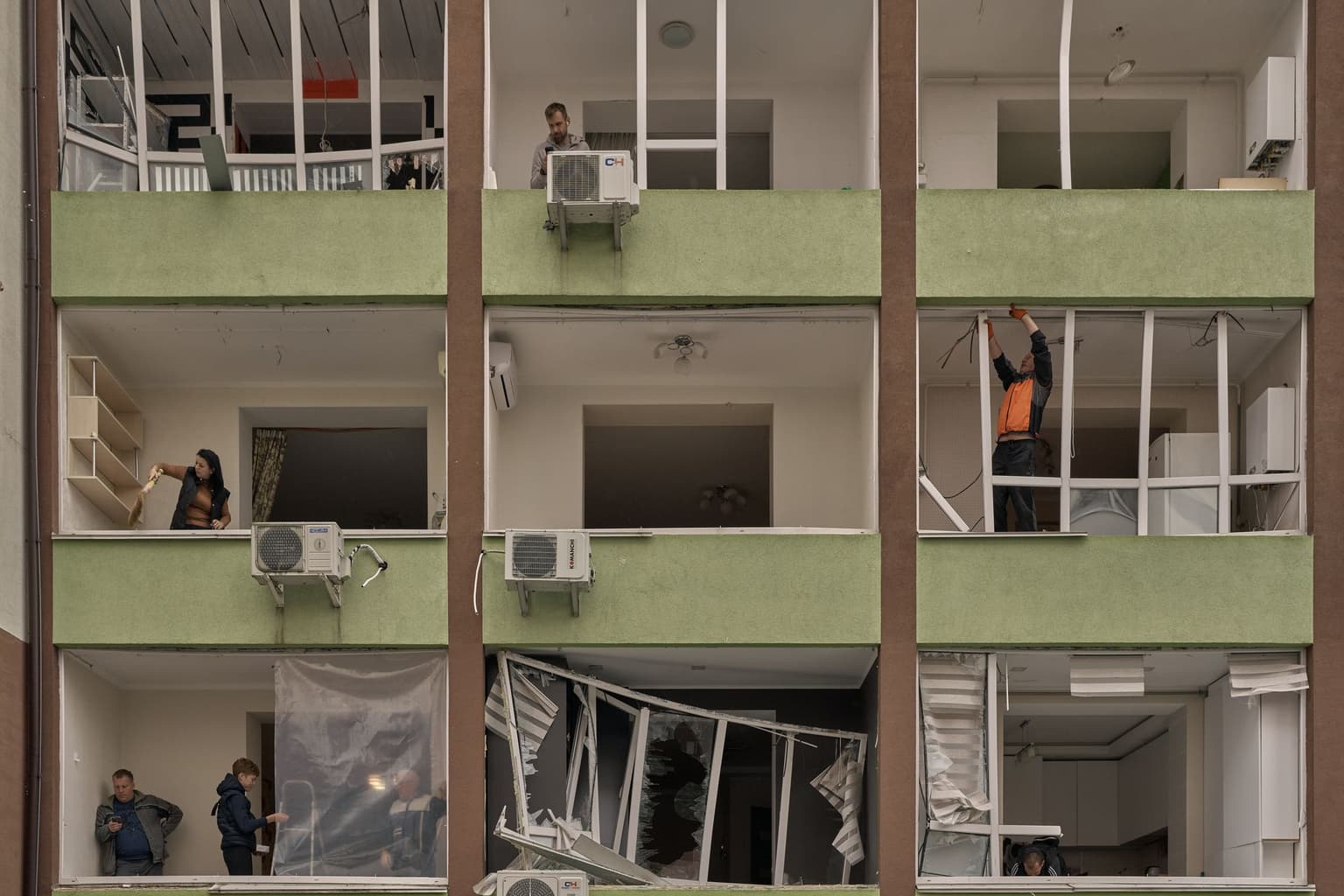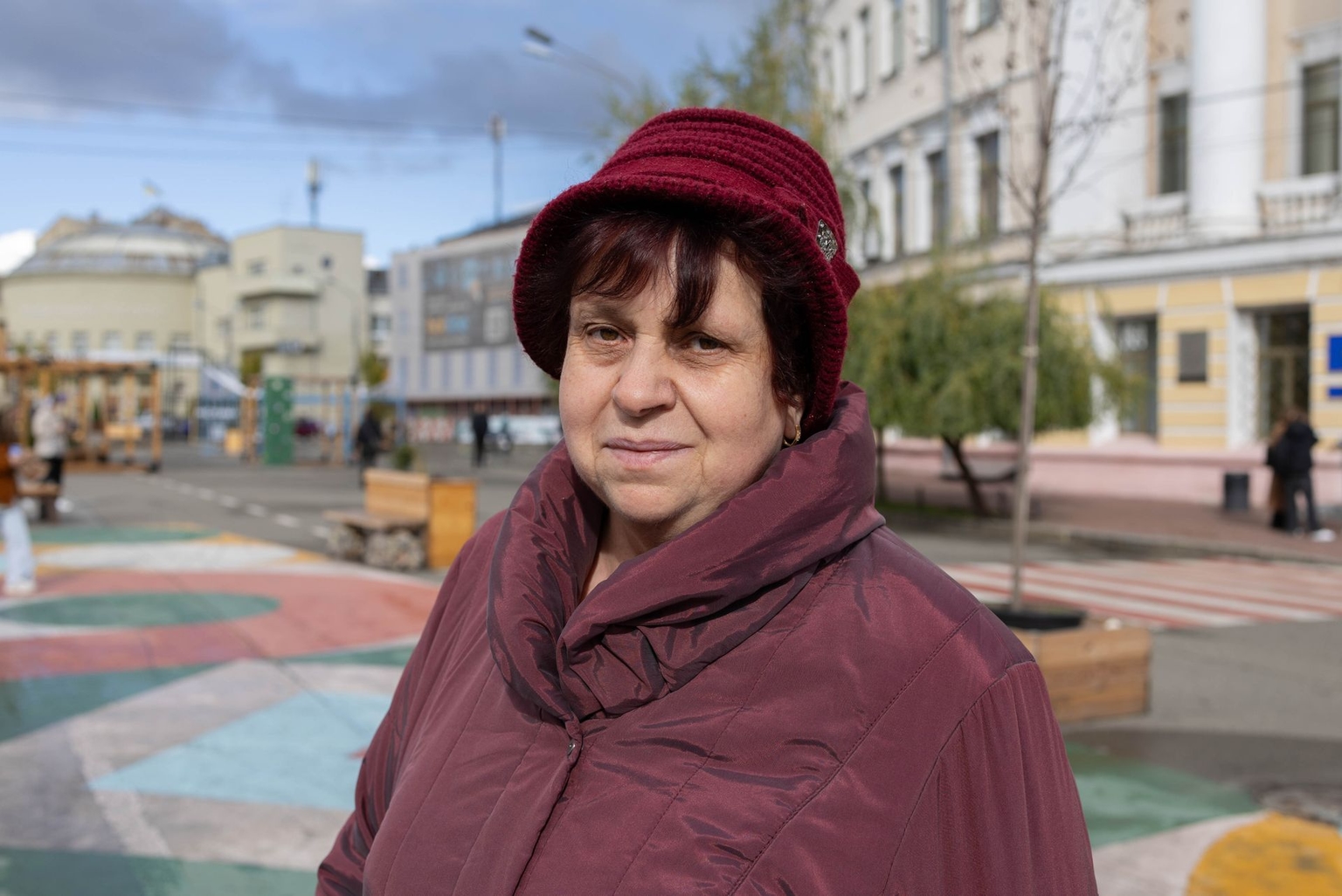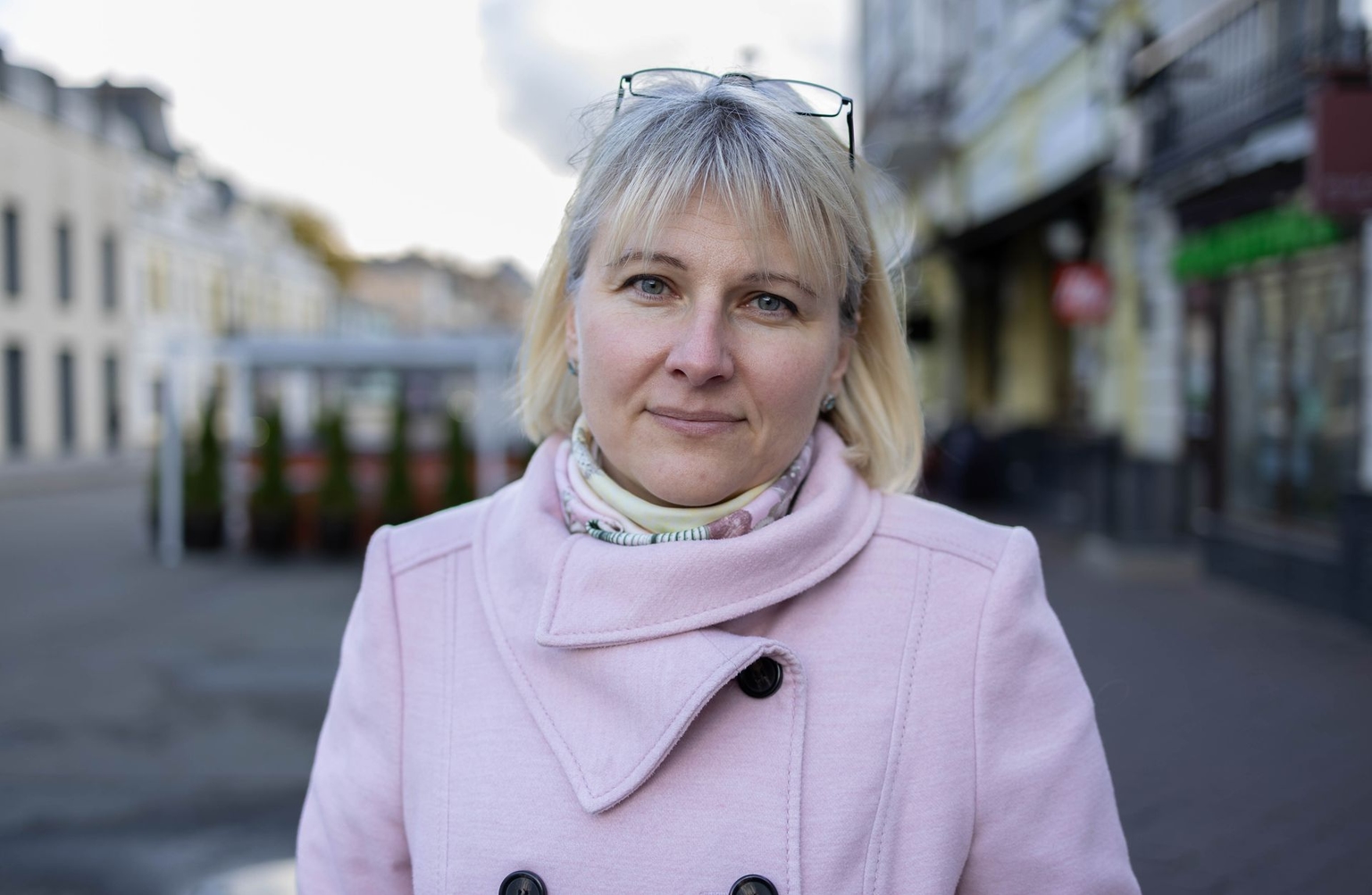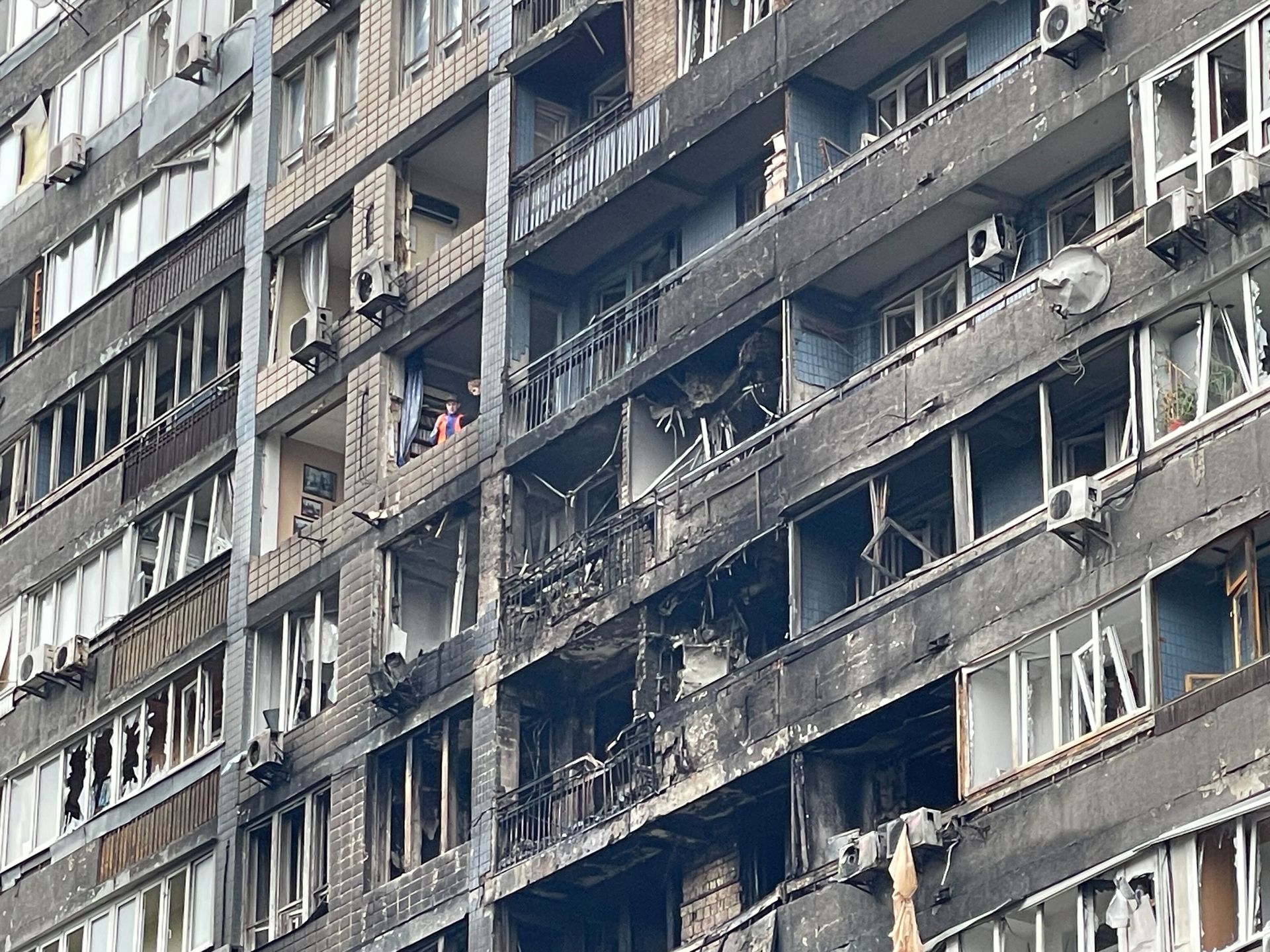Ukrainians brace for another harsh winter as blackout fears return

People inside the damaged apartments, following a Russian overnight attack on Kyiv, Ukraine, on Sept. 28, 2025. (Kostiantyn Liberov / Libkos / Getty Images)
As the first cold weather set in across Ukraine, Russia ramped up its attacks on the country's energy grid, which was already under growing strain with every drop in temperature.
On Oct. 10 — exactly three years to the day after Russia's first major strike on Ukraine's energy sector in 2022 — Russia launched nearly 450 drones and 30 missiles, causing power outages across nine regions, including Kyiv. Over 20 people were injured across the country, and a child was killed in Zaporizhzhia Oblast.
Emergency crews worked late into the night to restore water and electricity. Still, some households remained without power for nearly a full day.
"The enemy has not changed its intentions to completely destroy our energy system and plunge Ukrainian cities into complete darkness, and is using new tactics each time to achieve this. Therefore, we must be prepared for any scenario," said Energy Minister Svitlana Hrynchuk.
In areas far from the front line, many Ukrainians had long stopped thinking about blackouts, and the sudden disruption, including lack of access to water, caught some off guard. Even so, Ukrainians are quietly bracing for the winter ahead — a season of hardship they have come to know all too well.
The Kyiv Independent spoke with Kyiv residents about how they endured the first blackout after a long pause and how they are now preparing for winter, as fears grow over renewed Russian attacks on Ukraine's energy infrastructure.
Polina Irzhanska
pensioner

"I'm a displaced person from Kherson and have been living in Kyiv for almost three years now.
"I believe this fall and winter will be very difficult. We once lived through a whole month — November — in Kherson without electricity, water, or heating, relying only on gas. After Kherson was liberated and the attacks started, we moved to Kyiv. My daughter and her husband stayed behind.
"We'll survive — I just want Ukraine to be free. I want so badly to go home."
Denys Kidruk
IT specialist

"In the morning (on Oct. 10), we woke up — no electricity, no water. There was a bit of water left in the kettle, just enough to wash up. I got ready and went to work. That's all.
"We've been in this emotional pit for over a year now. We'll take the EcoFlow to work to charge it — then at least we'll have some light. We'll survive somehow. What else can we do? Either join the army, or do everything we can to support it."
Svitlana But
administrative worker

"I have a large battery in my apartment that lasts about three to four hours, so I prepared for power cuts two years ago.
"This isn't new — it's happened before. There's already a plan in place, and people are prepared. It's not the worst thing that could happen.
"How do the children cope with power cuts? As long as there's Wi-Fi, they're fine. For them, it might even be a bit of fun — all the flashlights and the change in routine. It's something new and exciting. They're children, after all — they shouldn't have to carry the burden of these problems."
Oleh Chernobai
lawyer

"I experienced blackouts in my early childhood during the Soviet era. Since then, not much has really changed. The only difference now is that I've bought a battery for the Wi-Fi, extra power banks.
"We understand the reality: a drone or missile can strike from anywhere, at any time. Still, we have to keep working and doing our jobs, no matter what's happening.
"How do I feel mentally? Like every citizen of Ukraine in the fourth year of this war — more or less. I wouldn't say I feel comfortable, but I feel mentally stable, considering the situation."
Dasha Nikitchenko
student

"I didn't really think about the power going out. When I woke up (on Oct. 10) and realized there was no water in the house, of course, it was unpleasant. But after a while, the water came back. I wasn't too worried.
"As for electricity, everyone had generators and charged power banks, so the whole neighborhood was buzzing. If someone had power, you could always go to their place. We got through it, somehow.
"Nothing will ever be as bad as 2022. Now, energy companies know what to do when the lights go out, so I think we'll be fine."
Anastasiia Fiialka
pub manager

"During previous winters, the blackouts were terrible. Everything just stopped. Nothing worked. And even if something did, you couldn't walk down the street because of the smell of gasoline. It affects your health. I don't want to go through that again.
"Winter is much scarier than summer — it gets freezing. You can't heat the apartment when there's no power. I just hope things will be better this time, that the outages won't be as bad as before."










